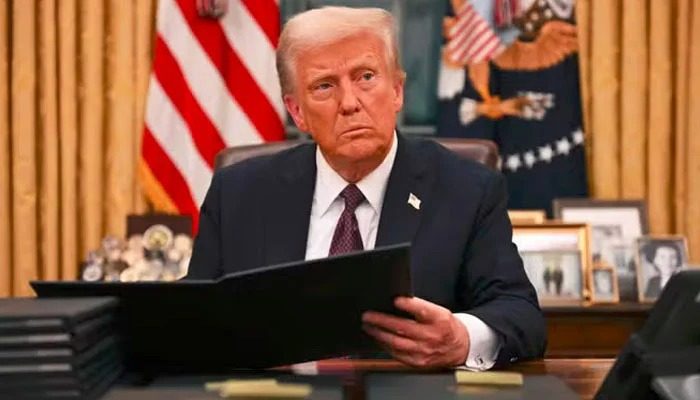
By Amjad Qaimkhani
WASHINGTON: US President Donald Trump has signed a new executive order banning citizens from 12 countries from entering the United States, citing national security concerns. The order, announced by the White House on Wednesday, will come into effect from 9 June 2025.
The countries affected by the full travel ban include Afghanistan, Iran, Libya, Somalia, Sudan, Yemen, Burma (Myanmar), Chad, the Democratic Republic of Congo, Equatorial Guinea, Eritrea, and Haiti. Several of these nations—particularly Afghanistan, Iran, Libya, Somalia, and Sudan—have been the focus of earlier US travel restrictions under Trump’s previous presidency.
In a separate statement, the White House said seven more countries would face partial entry restrictions. These include Burundi, Cuba, Laos, Sierra Leone, Togo, Turkmenistan, and Venezuela.
The move follows a deadly attack in the city of Boulder, Colorado, which Trump referenced in a video message. “The recent terrorist attack in Boulder has shown us how dangerous it can be to let foreign nationals in without thorough screening,” he said.
In addition to the travel bans, Trump has also suspended admissions of foreign students to Harvard University, a decision expected to stir debate among academics and immigration advocates alike.
This latest executive order mirrors Trump’s controversial 2017 “Muslim ban,” which initially barred citizens from seven Muslim-majority countries. That policy faced widespread protests but was eventually upheld by the US Supreme Court in 2018 after revisions.
President Joe Biden repealed the ban in 2021, calling it “a stain on our national conscience” in one of his earliest actions after taking office. Earlier this year, on 20 January, Trump had also signed another order tightening screening procedures for all foreign entrants, stressing the need for stronger safeguards to identify potential threats to national security.



